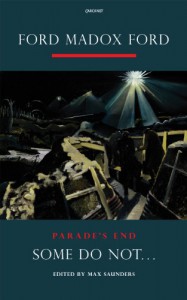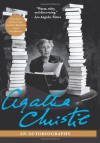About Me
Our company has worked successfully in the field of academic assistance for over many years. We consistently upgrade our goals to improve the quality of service we provide and to maximize customer satisfaction. Our working experience, customer feedback, and market resources have brought about the creation of an exclusive online service.
Learn more:
Some Do Not...

It is, in fact, asking for trouble if you are more altruist than the society that surrounds you.
I've avoided Ford Maddox Ford for a while after reading about his relationship with Jean Rhys (the author most famous for the brilliant Wide Sargasso Sea).
I can't remember what exactly put me off but from what I remember (and I may be wrong here), there seemed something very patronising about him that just put me off.
Having now read Some Do Not..., the first part of Ford's magnum opus Parade's End, I am more sympathetic to Ford's work again because his characters seemed to reflect that Edwardian sense of being caught up in the still very Victorian mores while also sensing that there is a shift, something that unsettles them.
'How do you get rid of a baby? You've been a servant. You ought to know!'
That had been the great shock, the turning-point, of Valentine Wannop's life. Her last years before that had been of great tranquillity, tinged of course with melancholy because she loved Christopher Tietjens.
This was just one of the refreshing examples of Ford's characters openly mentioning topics that hadn't been - or don't seem to have been - discussed in other novels of the time.
"Some Do Not..." was written in 1924 and is the first of four novels describing the implosion of British society in the lead up to and during the First World War.
Ford does this by focusing the story on the mathematician Christopher Tietjens, whom he describes as "a Tory", and who is basically a modernised version of Don Quixote on a chivalric quest to remain true to his morals in world full of hypocrisy and backstabbing, which soon culminates in this first book with the outbreak of the war.
"On the next day came the war. That was a nightmare of pure suffering, with never a let-up, day or night. It began on the morning of the fourth with the arrival of her brother from some sort of Oxford Communist Summer School on the Broads. He was wearing a German corps student's cap and was very drunk. He had been seeing German friends off from Harwich. It was the first time she had ever seen a drunken man, so that was a good present for her. Next day, and sober, he was almost worse. A handsome, dark boy like his father, he had his mother's hooked nose and was always a little unbalanced: not mad, but always over-violent in any views he happened for the moment to hold.
At the Summer School he had been under very vitriolic teachers of all sorts of notions. That hadn't hitherto mattered. Her mother had written for a Tory paper: her brother, when he had been at home, had edited some sort of Oxford organ of disruption. But her mother had only chuckled. The war changed that. Both seemed to be filled with a desire for blood and to torture: neither paid the least attention to the other."
I really liked Christopher and the people close to him: his estranged wife Sylvia seems to despise him at first but turns out to be fiercely loyal. His brother, whom he has nothing in common with, supports him without being judgmental. The young Suffragette, whom he rescues from a mob on a golf course, seems totally opposed to him in attitude and yet she defends him.
Ford's writing requires some getting used to. There is a flow and poetry to the language that is no longer in use in today's novels. There is also an attempt at stream of consciousness narration that, at times, is confusing at the start of the book but then blends in with the rhythm of the novel.
The book ends on a cliffhanger where Christopher, after turn of convalescence from shell-shock, returns to the front, and I really look forward to reading the next installment.
He said, he remembered: 'But...for ever...'
She said, in a great hurry: 'But when you come back...Permanently. And...oh, as if it were in public...I don't know,' she had added.
'Ought we?...I'd be ready...' She added: 'I will be ready for anything you ask.'
 1
1
Recent acquisitions!
Both the Suchet book and the Laura Thompson biography were only .99. I'm pretty sure that my fellow Agathytes who have read Thompson's biography were underwhelmed - remind me below.
I also decided that if was going to embark on a project of understanding Christie better, it made sense to go straight to the author's own words about herself and her life, so her autobiography is the thing that I plan to concentrate on first.And the Curran book was really just bought on a whim because the premise is intriguing, especially now that I don't have to worry about any of the solutions being accidentally spoiled.
Which takes me back to A is for Arsenic, actually. I own it, but was reluctant to read it because I didn't want to spoil any of the unread books.





